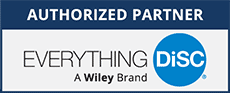A course in medical coding can expand your career opportunities in the medical industry.
But it’s essential to know what ICD-10 experience is, what you’re learning, and why. The ICD-10 coding system is the tenth revision of the International Statistical Classification of Diseases and Related Health Problems. Created by the World Health Organization, the system consists of two parts:
- ICD-10-CM – used in all U.S. health care settings to establish a diagnosis code that describes the patient’s medical condition
- ICD-10-PCS – used in U.S. hospitals to define inpatient procedures
These codes form the basis for defining patient information in health records, medical claims, and outcomes reporting.
Before you take a course in medical coding, it might be helpful to get a better understanding of ICD-10 medical coding jobs and what they can mean for your career. Here are some general ideas to help you grow your career in medical coding.
Build a resource library.
While online coding apps and technology are a great resource, having a physical library with codebooks and coding guidelines helps immensely.
Experts suggest that coders should not become reliant on technology and that building your own resource library will provide credible sourced information at your fingertips. Knowledge of how to use coding resources will help you recognize incorrect codes. And current coding manuals are required for taking coding certification exams; electronic resources are not allowed in the exam rooms.
Start in entry-level opportunities.
Taking your first job in an entry-level position will help you build the necessary experience to advance your career. Not only will you learn ICD-10 medical coding on the job, but you will build skills that will make you more marketable in the future.
You’ll also be able to learn how the system works. By training with experienced individuals, you will be able to develop habits that will help you throughout your career.
Work with your management.
Medical coding is a process-oriented career. There will be frequent audits to ensure the company or facility is compliant with current regulations and the ICD-10 codes. Building a positive professional relationship with management will be crucial to your development.
As you continue to climb the ladder throughout your career, having a good working relationship with supervisors and audit managers will help you. Collaborate with them to ensure your work is at the necessary level for their requirements.
Seek out a mentor to help grow.
Another helpful idea when you’re entering an ICD-10 medical coding job in the industry is to work with a mentor. Seek someone out in your community who does a job you want to do. Talk with them about their career path and learn from their experiences with ICD-10, and even their mistakes.
They can also become a sounding board to help you work through difficult situations. If you’re concerned, confused, or frustrated with something at your new job, get their perspective to help you solve the issue without burning bridges.
Are you looking for a career where medical coding would benefit you? Kick-off your future with a course in ICD-10 coding.

